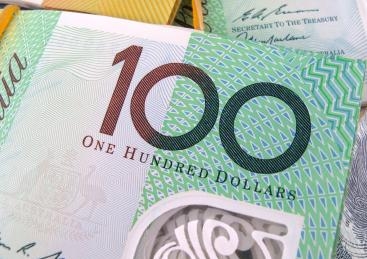No need for an Australian Tea Party
A political war over raising the debt limit makes no sense for the opposition that has spent six years saying the national good cannot be held hostage to anti-debt hysteria, writes Geoffrey Garrett.
A political war over raising the debt limit makes no sense for the opposition that has spent six years saying the national good cannot be held hostage to anti-debt hysteria, writes Geoffrey Garrett.

OPINION: Australian politics seemed to turn very American last week. The government says the only economically responsible thing to do is raise the public debt limit now. Labor and the Greens say they will block it in the Senate.
Swap Obama for Abbott, the House of Representatives for the Senate, and the Republicans for Labor and the Greens, and this looks a lot like the US debt cum government shutdown fiasco that sent shockwaves through global markets a few months ago.
But Australia simply is not the US when it comes to government borrowing. That is why Abbott will inevitably win the fight to raise the debt ceiling to $500 billion, and why the markets are unlikely to panic even if this takes months, not days.
Australia’s public debt situation is un-American for two reasons.
The first is politics. The whole raison d’etre of the Tea Party-infused Republicans is to oppose deficits and debt – from the namesake Boston tea party nearly 250 years ago to Barry Goldwater in 1964 to New Gingrich in 1994 to Paul Ryan in 2010.
Just saying no to more debt is a near religious commitment for the Republican right, which made much more credible its threat to risk US sovereign default in the name of ideological purity.
Polar opposites
Labor and the Greens are the polar opposites. On all the big calls – fighting the GFC, building the NBN, implementing the Gonski reforms, rolling out disability care – the former government and its Green allies said fiscal prudence isn’t always in the national interest. Now Abbott has to pay their bills.
Labor and Green diehards don’t care much about debt. Swing voters punish inconsistency. Blocking the government on the debt limit is a no-win for the opposition. All the more so when the Coalition can cash in the Greens’ $400 billion offer whenever they want. So expect much less political theatre in Canberra than was the case in Washington. The second difference between Australia and the US concerns the economic facts. The US may or may not be in a fiscal crisis. But the data say Australia isn’t. Here are the facts on gross public debt according to the IMF’s World Economic Outlook released last month.
By the end of 2013, Australia’s gross public debt will be 29.1 per cent of gross domestic product. This will be the third lowest figure among the advanced economies, below only two tiny quirky European countries, Estonia and Luxembourg. The comparable figure for the US will be 106.0 per cent. This will be dwarfed by Japan’s whopping 243.5 per cent. Even Europe’s fiscal hawk, Germany, will have racked up gross public debt of 80.4 per cent of GDP by the end of the year.
Trajectory targeted
Some say Australia’s problem is not the level of debt but its trajectory. Australia’s public debt has risen from zero at the end of the Howard years, a rise we are often told is rapid. It is hard to sustain that on the facts.
Between 2011 and 2013, Cyprus’s gross public debt will have increased from 71.1 per cent to 114.1 per cent of GDP – that’s a fiscal crisis. Spain’s public debt will have increased by more than 20 percentage points of GDP over the same two years.
The IMF projects Australia’s debt will have gone up by 4.6 points of GDP, right in the middle of the advanced economies. The only statistic where Australia fares poorly is proportionate change in debt, but only because of its very low starting point. Australian public debt will have increased by 19 per cent from 2011 to 2013, in the bottom fifth of the advanced economies.
Half a trillion dollars may sound like a lot of money. But it’s less than a third of the Australian economy, and by international standards that is very little public debt.
The fiscal hawks are right to point out two things. First, Australian private debt (mostly housing) is very high. Second, global markets, particularly currency markets, view Australia as something of a plaything – and they can move very quickly against us.
It is in no one’s interests to give global markets reasons to doubt the Australian economy. Losing our AAA credit rating would be a disaster, but it isn’t on the cards even if the debt limit is raised. Artificially manufacturing a crisis with a political war over raising the debt limit might also spook the markets. Fortunately, a political war over raising the debt limit makes no sense for the opposition which has spent six years saying the national good cannot be held hostage to anti-debt hysteria.
Geoffrey Garrett is Dean of the Australian School of Business at UNSW.
This opinion piece was first published in The Australian Financial Review.